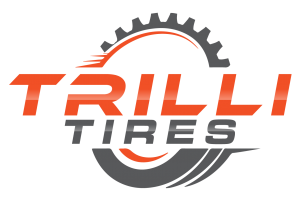Spark plugs are small yet essential components in internal combustion engines, playing a pivotal role in powering your vehicle. Despite their size, their function is integral to the engine’s performance, efficiency, and reliability. This article will explore how spark plugs work, their importance, and why maintaining them is crucial for your vehicle’s health.
What Are Spark Plugs?
They are devices installed in the cylinder heads of internal combustion engines. They deliver the electrical spark needed to ignite the air-fuel mixture in the engine’s combustion chamber. This ignition creates an explosion that powers the engine and keeps your car running.
Each spark plug consists of a central electrode, an insulator, a ground electrode, and a metal shell. These components work together to generate a spark strong enough to ignite the compressed fuel-air mixture in the engine.
The Role of Spark Plugs in Your Engine
The primary function of the plugs is to ignite the air-fuel mixture in the engine. Without them, the engine cannot produce the necessary combustion to generate power. Spark plugs also help to:
- Improve Fuel Efficiency: Properly functioning plugs ensure that the fuel burns efficiently, maximizing mileage and minimizing waste.
- Enhance Engine Performance: They provide consistent combustion, leading to smooth engine operation and optimal power output.
- Reduce Emissions: By ensuring complete combustion, they help lower harmful emissions from the exhaust.
How Do They Work?
The operation begins when the ignition coil generates high voltage. This voltage travels through the ignition wires to the spark plug. When the voltage reaches the spark plug, it creates an electric arc across the gap between the central and ground electrodes.
This spark ignites the compressed air-fuel mixture in the combustion chamber. The resulting explosion pushes the piston down, creating the mechanical energy that powers the engine.
This process happens repeatedly, typically thousands of times per minute, ensuring a continuous power supply for the vehicle.
Different Types
Different types of spark plugs are designed to meet the specific needs of various engines:
- Copper: These are the most common and cost-effective options, offering reliable performance for standard vehicles.
- Platinum: Known for their durability, the platinum quality lasts longer and provides better performance than copper options.
- Iridium: These are the most advanced and durable, offering superior performance and longevity for high-performance vehicles.
- Double Platinum: Designed for modern engines, they provide excellent ignition and are ideal for vehicles with a waste-spark ignition system.
Signs That Your Spark Plugs Need Replacement
Spark plugs wear out over time due to constant exposure to high heat and pressure. Here are some common signs that indicate it may be time to replace them:
- Reduced Fuel Efficiency: Worn-out plugs may not ignite the fuel completely, leading to poor mileage.
- Engine Misfires: If the plugs fail to provide consistent ignition, the engine may misfire or hesitate during acceleration.
- Rough Idling: Faulty spark plugs can cause the engine to run unevenly, resulting in a rough idle.
- Difficulty Starting the Engine: Worn-out plugs can make it harder to start the engine, especially in cold weather.
How To Maintain Them
To keep your spark plugs in good condition and ensure optimal engine performance, regular maintenance is essential. Here are some tips:
- Inspect Regularly: Check the condition of your spark plugs during routine vehicle maintenance. Look for signs of wear, such as deposits, erosion, or damage.
- Replace as Needed: Follow your vehicle manufacturer’s recommendations for spark plug replacement intervals, typically every 48,000 to 160,000 kilometres, depending on the type.
- Use the Right Type: Always use spark plugs that are compatible with your vehicle’s engine specifications.
- Keep the Engine Tuned: A well-tuned engine reduces the stress on spark plugs, extending their lifespan.
How They Impact Other Engine Components
Spark plugs directly affect the performance of several other engine components. For instance:
- Ignition Coils: Faulty plugs can overload the ignition coils, leading to premature failure.
- Catalytic Converter: Misfiring caused by bad plugs can damage the catalytic converter, which is a costly component to replace.
- Pistons and Cylinders: Poor combustion due to worn spark plugs can lead to carbon buildup, which may harm the pistons and cylinders over time.
Why Quality Matters
Investing in high-quality spark plugs is crucial for maintaining your vehicle’s performance and longevity. Premium quality ones provide better ignition, smoother engine operation, and longer life, reducing the need for frequent replacements.
When to Consult a Professional
While inspecting and replacing these parts is a task some vehicle owners can handle, it’s best to consult a professional mechanic if you’re unsure. They can accurately diagnose spark plug issues and recommend the best course of action.
Final Words
Spark plugs may be small, but their role in engine performance is monumental. From igniting the air-fuel mixture to ensuring smooth operation, they are indispensable for your vehicle’s functionality. Regular maintenance and timely replacement of spark plugs can save you from costly repairs and keep your car running efficiently.
For expert advice and quality automotive services, contact TrilliTires in Richmond Hill. Let us help you keep your vehicle in top condition with professional care and reliable solutions.
